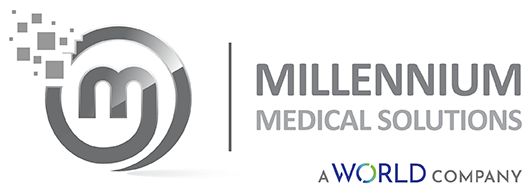MILLENNIUM MEDICAL SOLUTIONS
Millennium Medical Solutions Is Now a World Company
Alex Miller, who joins World Insurance as Head of PEO’s, said, “We are proud of what we have been able to accomplish together and are excited about our new chapter with World Insurance. The extensive resources, client-first approach, and broad expertise of World Insurance is a great complement to our PEO and Health Insurance knowledge. We look forward to providing our clients with the best nationwide insurance and risk management solutions available.”
Read more about this agency acquisition in our press release.
Specializing in Professional Employer Organizations
We maintain rich levels of benefits by finding ways of re-insuring clients and discovering market inefficiencies. We can also help determine if your business would be better served by outsourcing your employee benefits to a PEO. We work with several PEOs and we can help you determine which would be best for your unique situation.
GET STARTED WITH A FREE CONSULTATION

Office Address
200 Business Park Drive, Suite 204, Armonk, NY 10504
Office Contact
Phone: 855-667-4621
Email: info@360peo.com
Office Hours
Monday - Friday, 9:00 AM - 5:00 PM
Saturday - Sunday, Closed
About This Location
Millennium Medical Solutions merged with World Insurance Associates LLC on June 1, 2020.


Exceptional Support
Testimonials
Alex has been servicing our businesses with our health insurance needs for the last 12 years. He has invaluable experience in the field having worked on the client-side before entering brokerage. This has been a tremendous value add for us when trying to understand the complex world of the ever-changing health care world.
- Oren Klein
Alex is an amazing guy. He is by far the knowledgeable guy in the health care space I’ve ever met, with the added bonus that he can take such a complicated topic and reduce it to simple choices. For anyone seeking health insurance as an individual or a company, Alex is definitely the go-to guy.
- John Gordon, USA Corp Services LLC
Testimonials
I have been working with Alex and Jonathan from Millennium Medical Solutions for ten plus years. These guys are great. I highly recommend them. They are extremely knowledgeable and extremely responsive. I manage a medical practice in NYC and they have helped me with everything for my employees, from medical insurance, dental/vision, commuter benefits, life insurance, disability, supplemental. You name it! And they get the best deal possible. They value long term customers and your business over time by getting you the best value possible, rather than trying "to bang you over the head" so to speak, to make a quick buck all at once, like I have seen with other brokers. That makes a big difference to me! I know that they are always just a phone call or an email away and they are on my side, and they are going to go out of their way to help me if needed. I highly recommend them!
-Joe J., Office Manager | Lexington OB/GYN
Jonathan at Millennium goes above and beyond to make sure your needs are met and your coverage is tailored to your needs. You couldn't ask for better help navigating the twists and turns of the health insurance industry and coming out a healthy winner!
- Jane Mayle

